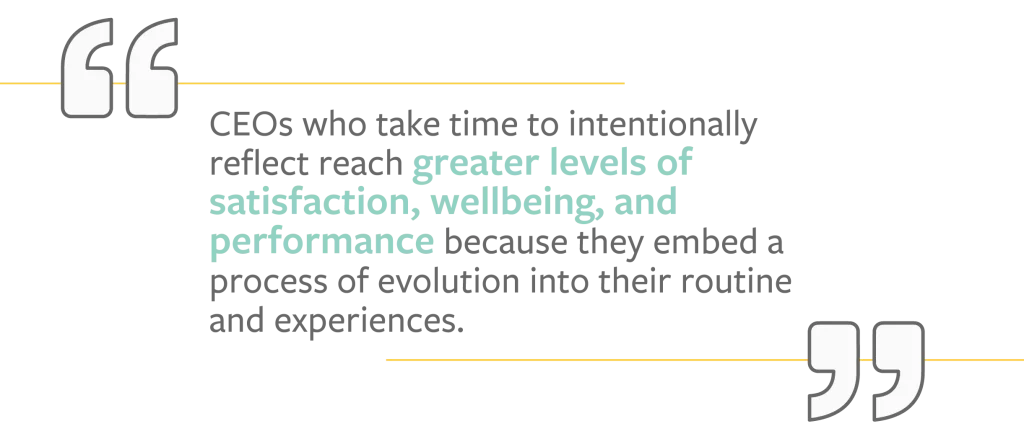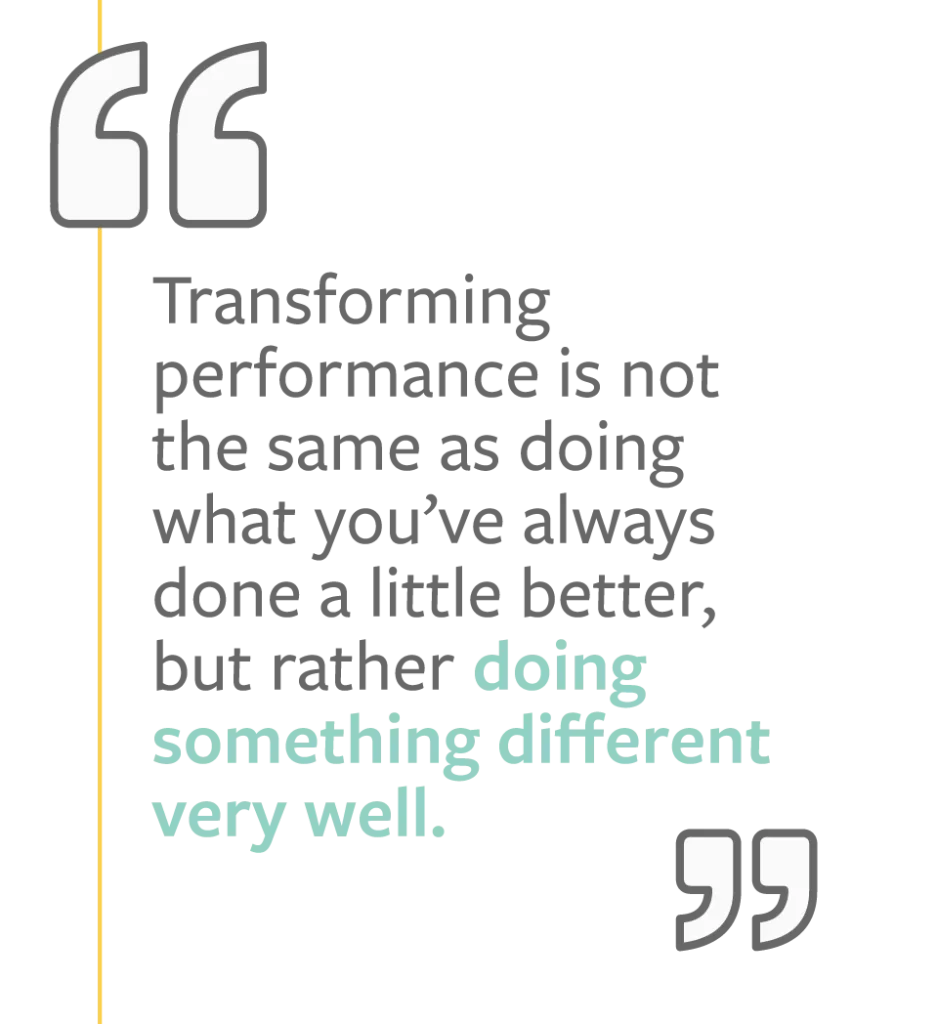New year, new you! And that means new leadership and a transformational business.
We like to view CEOs and executive leaders as the elite athletes of business. You’re continually driving performance, looking for new ways to beat out the competition, and subject to ultimate mental endurance. Have you ever noticed when an athlete has a terrible game or performance and then comes out for the next game with intensity to win, performs incredibly, and doesn’t even look like the same player you observed in the previous game? Then you ask yourself, how do they do that? Likely, they doubled down on the routine they know prepares them for peak performance. We build elite CEOs by establishing the personal and professional routines that allow them to win. What does your routine look like? How do reset yourself each day? Does each morning and evening look the same as the one before? Like many, your routine probably largely consists of planning and execution. Because work and life are so busy, we understand how easy it is to get into the rhythm of plan, execute, repeat. Just as we tell our new clients, this cycle isn’t helping you win in life or in business.
To win in life and business, you must intentionally insert one more step into that cycle: the debrief or reflection step. We know it will be very difficult at first to spend time you could be “getting things done” in a state of learning, but it will pay off. By adding reflection to your routine, you will become more efficient and make better decisions in critical moments. How often do you ask yourself questions like: What went well? Where did we fall short in execution? What should I be doing more or less of in the future to lead toward greater success?
In the last 15 years working with executives, we have discovered leaders often under invest in debriefing the critical life and business moments. Unfortunately, by doing so, they surrender the learning and innovations that would lead to elite performance. This new year, we are challenging CEOs to reflect over their performance in three categories: 1) business performance, 2) leadership performance, and 3) performance in life. Our belief is the whole person. Your life affects your work and your work affects your life. CEOs who take intentionally reflect reach greater levels of satisfaction, wellbeing, and performance because they embed a process of evolution into their routine and experiences.

Don’t leave your personal growth up to chance because your performance and well-being depend on it. To become an elite executive, you must hone your performance, purpose, and intentionality. By doing so, the ROI in life and business just might astonish you. One study demonstrated employees who took 15 minutes at the end of their day to debrief hurdles and lessons learned performed 23% better after only 10 days than their non reflective counterpart. Not only does reflection increase your performance metrics, it reaps substantial health benefits as well. In another study, commuters who spent car time intentionally thinking about their day ahead were happier, more productive, and reported feeling less “burned out” than commuters who did not. They were also more likely to achieve their career goals and adapt to stress. Additionally, reflection can minimize the results of stress leading to feelings of inadequacy or ill-prepared. Psychological research indicates stress is often manifested in the way humans “frame” or perceive events and the stories we tell ourselves. When we use intentional reflection time to undo or redo our frame of mind and perception, we can alleviate stress, think more clearly, and make rational decisions which leads to higher performance and overall increases in well-being. The above studies focus on shifting from the execute mindset to the reflect mindset. In a reflective state, you are more apt to create better plans and increase the success of future executions. So drop the “to do” list and pick up the “what am I learning” list.
The Process
The following is a reflection cadence we recommend for executive leaders to successfully debrief weekly, quarterly, and annually.
Weekly reflection tips:
- Sunday: A look forward into the next week to examine opportunities for high impact, potentially challenging situations and how you want to show up for them, and critical opportunities to reinforce the strategic message.
- Daily morning reflection: Ask yourself, “What is the energy I want to bring to the business today?” and “What is the single most important thing I want to accomplish today?”
- Last hour of work on Friday: Look back and evaluate yourself according to your Sunday look forward.
Quarterly reflection tips:
- What are the most important strategic initiatives for the quarter that will require your engagement?
- What will success look like within each of those initiatives at the end of the quarter?
- What are the most significant celebrations and events for the business for the coming quarter? (People, milestones, achievements, and defining your role in these events)
- What are the top two personal accomplishments for the quarter ahead?
- With each ensuing quarter, embed a looking back and looking forward process.

The choice is yours. Do you want to be elite or do you want to continue driving the same results with the same process? Transforming performance is not the same as doing what you’ve always done a little better, but rather doing something different very well. Regardless, as an executive, you will put in the time in 2020, so make 2020 your year of transformation. Using performance debriefing and reflection to take control over your impact will be the difference maker. Instead of focusing on a resolution to improve one small area of your life, be bold. Make your resolution about implementing a process to deliver transformational results in all areas of your life.

